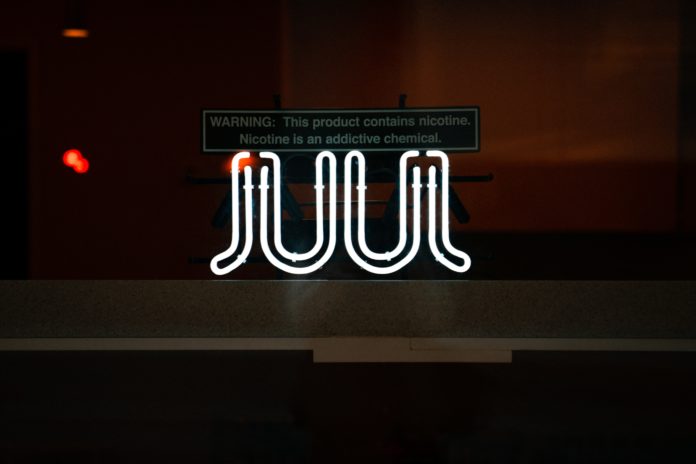Attorney General Matthew J. Platkin announced today that New Jersey has entered a multistate settlement for $438.5 million with JUUL Labs. This resolves a two-year multistate investigation into the e-cigarette manufacturer’s marketing and sales practices. In addition to the financial terms, the settlement will force JUUL to comply with a number of strict terms that will severely limit their marketing and sales practices.
New Jersey will receive approximately $33.6 million to be paid in yearly installments, with the first due by the end of 2022 and the final payment due by the end of 2027. JUUL has the option to split the final payment up over five additional years. If the company chooses to do so the final settlement will reach $36.5 million. The settlement is subject to final approval of the court.
“For years the tobacco industry has preyed on young people to get them addicted to nicotine early and keep them hooked for the rest of their lives,” said Attorney General Platkin. “This settlement will protect youth from the hazards of vaping and smoking and ensure that JUUL can no longer put profits over public health by using unlawful sales practices to fuel a youth vaping crisis.”
“As the rate of teen smoking went down, JUUL was finding new ways to market nicotine to young people,” said Cari Fais, Acting Director of the Division of Consumer Affairs. “This monumental settlement shows the e-cigarette industry that we will not tolerate deceptive marketing to get teens addicted.”
JUUL was, until recently, one of the biggest players in the vaping market. The multistate investigation revealed that JUUL rose to this position by willfully engaging in an advertising campaign that appealed to youth, even though its e-cigarettes are both illegal for them to purchase and unhealthy for them to use. The investigation found that JUUL relentlessly marketed to underage users with launch parties, advertisements using young and trendy-looking models, social media posts, and free samples. It marketed a technology-focused, sleek vape that could be easily concealed and sold its product in flavors known to be attractive to underage users. JUUL also manipulated the chemical composition of its product to make the vapor less harsh on the throats of the young and inexperienced users. To preserve its young customer base, JUUL relied on age-verification techniques that it knew were ineffective.
The investigation further revealed that JUUL’s original packaging was misleading in that it did not clearly disclose that it contained nicotine and implied that it contained a lower concentration of nicotine than it actually did. Consumers were also misled to believe that consuming one JUUL pod was the equivalent of smoking one pack of combustible cigarettes. The company also misrepresented that its product was a smoking-cessation device without FDA approval to make such claims.
The $438.5 million will be paid out over a period of six to ten years, with the amounts paid increasing the longer the company takes to make the payments. If JUUL chooses to extend the payment period up to ten years, the final settlement would reach $476.6 million. Both the financial and injunctive terms exceed any prior agreement JUUL has reached with states to date.
As part of the settlement, JUUL has agreed to refrain from:
- Youth marketing
- Funding education programs
- Depicting persons under age 35 in any marketing
- Use of cartoons
- Paid product placement
- Sale of brand name merchandise
- Sale of flavors not approved by FDA
- Allowing access to websites without age verification on landing page
- Representations about nicotine not approved by FDA
- Misleading representations about nicotine content
- Sponsorships/naming rights
- Advertising in outlets unless 85 percent audience is adult
- Advertising on billboards near schools or playgrounds
- Public transportation advertising
- Social media advertising (other than testimonials by individuals over the age of 35, with no health claims)
- Use of paid influencers
- Direct-to-consumer ads unless age-verified,
- Free samples.
The agreement also includes sales and distribution restrictions, including where the product may be displayed/accessed in stores, online sales limits, retail sales limits, age verification on all sales, and a retail compliance check protocol.

